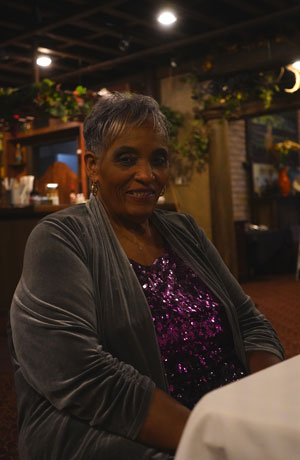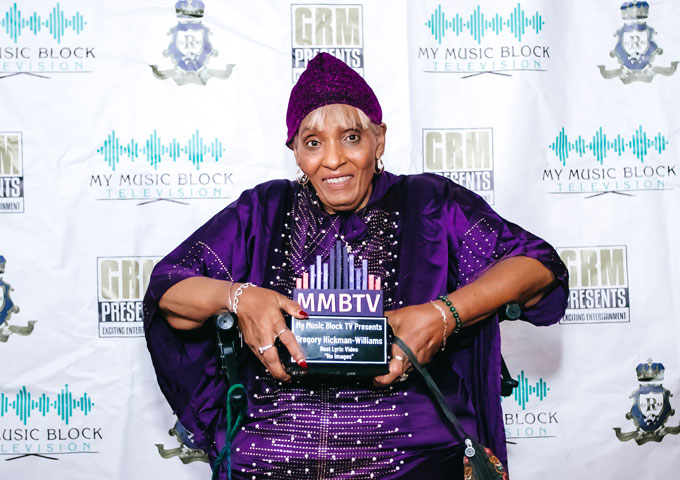Sharon Manuel’s musical journey serves as a vibrant mosaic woven from her early encounters with melodies to her pivotal role in both the world of opera and the pursuit of civil rights. Her musical odyssey commenced at a tender age, harmonizing with piano keys and exploring the realms of vocal expression. However, it was during her high school years that fate intervened in the guise of Mr. Eaton, an inspirational figure who ignited not just Sharon’s but her sisters’ passion for singing. This mentorship kindled a flame that continued to burn brightly as she navigated through college in the tumultuous 1960s.

Immersed in the fervor of the era, Sharon Manuel’s commitment to social change was palpable as a cherished member of the Student Nonviolent Coordinating Committee (SNCC). Side by side with luminaries like Martin Luther King Jr., Coretta Scott King, Malcom X, and Stokely Carmichael, she marched, lending her voice to the clarion call for justice and equality.
The crucible of the ’60s molded not only her activism but also her musical prowess. This pivotal era nurtured her voice, honing it into a vessel for both emotive resonance and social conscience. Her dedication bore fruit as she emerged as a revered music teacher and assumed the mantle of lead singer at Trinity United Methodist Church, a platform where her voice served not only as a melody but also as a beacon of hope and empowerment.
Sharon Manuel’s narrative intersects with a pivotal moment in the 1980s, where she, alongside Gregory Hickman-Williams, identified a void in the musical landscape—the absence of classical compositions by Black musicians. Their impassioned advocacy found support from luminaries such as Emmy Award winner Ben Williams, the First African American Broadcaster on KPIX ch 5, illuminating a path toward recognition and representation within the classical music domain.
Her recent resurgence, epitomized by the release of the single, “The Negro Speaks of Rivers,” stands as a testament to her unwavering dedication. The historical significance of her recorded performance alongside Gregory Hickman Williams, Charlotte Nelson, and Cody Gillette in “Blacks Making History Today” on February 6th, 1983, had remained obscured until its recent unveiling.
The song “The Negro Speaks of Rivers” is based on Langston Hughes’ evocative poem, which itself is a testament to resilience, heritage, and the enduring spirit of Black identity. Hughes’s narrative, woven with lyrical finesse, traces the ancestral lineage of a Black man, tethering his existence to the monumental rivers that have sculpted his people’s history. Sharon Manuel’s musical rendition of this masterpiece is a tapestry of haunting resonance, her vocals imbuing the verses with an eloquent profundity that mirrors the poem’s essence.
At the onset, the poem establishes an intimate bond between the narrator and the ancient rivers, proclaiming, “I’ve known rivers ancient as the world and older than the mountains.” Here, the deep-rooted connection to the natural world becomes palpable, evoking a sense of belonging entrenched in a lineage tethered to Africa’s flowing veins.

The lyrical journey continues as specific rivers—the Nile, Congo, and Euphrates—are invoked, each a conduit of African history, culture, and sustenance. Sharon Manuel’s rendition echoes the multifaceted roles these rivers played: vessels of transportation, sources of life, and reservoirs of spirituality for generations of Africans.
Amidst the poetic description lies a poignant reflection on ancestral strife, encapsulated in lines like “I bathed in the Euphrates when dawns were young.” These words etch a portrait of endurance and resilience, encapsulating the beauty and fortitude found amid adversity.
The poem culminates with a resounding proclamation: “My soul has grown deep like the rivers.” In this declaration, the narrator’s identity intertwines with the unyielding strength of the African rivers, embodying a spirit unbroken by the trials of time.
In Sharon Manuel’s interpretation, every note, every intonation, is a deliberate homage to the poem’s essence. Her performance encapsulates the depth, emotional resonance, and unwavering belief that define the poem’s themes of heritage and resilience. Sharon Manuel’s profound engagement with the material resonates profoundly, magnifying the significance of Hughes’s powerful work.
Sharon Manuel’s recent recognition, including the MY MUSIC BLOCK TV AWARD, stands as a testament to her lifelong commitment to music and social consciousness. Her tireless dedication to both craft and cause serves as an enduring inspiration, echoing the very essence of “The Negro Speaks of Rivers”—a celebration of heritage, strength, and the enduring spirit of Black identity. It’s interesting to note that Sharon Manuel also accepted Gregory HIckman Williams’ MY MUSIC BLOCK TV AWARD on his behalf.
OFFICIAL LINKS: https://open.spotify.com/track/4F0pd4WdnfTniB0VczMgwk?si=cce1e77e51384956
You may also like
-
Big Caz, Taase & Harley G Deliver Raw Truth in “You Ain’t My Brother (Remix)”
-
“Bionic” by Spiderweb Brings Together Rock Royalty in a Seven-Minute Instrumental Powerhouse
-
l1l1ann’s “morris” Is a Pop-Punk Burst That Nails the Art of Instant Replay
-
Relapse by THRY Proves Introspection Still Has a Place in Modern Hip-Hop
-
NASTĒ Dives Deep into Dark Tech House with the Hypnotic EP ‘MY MIND’

